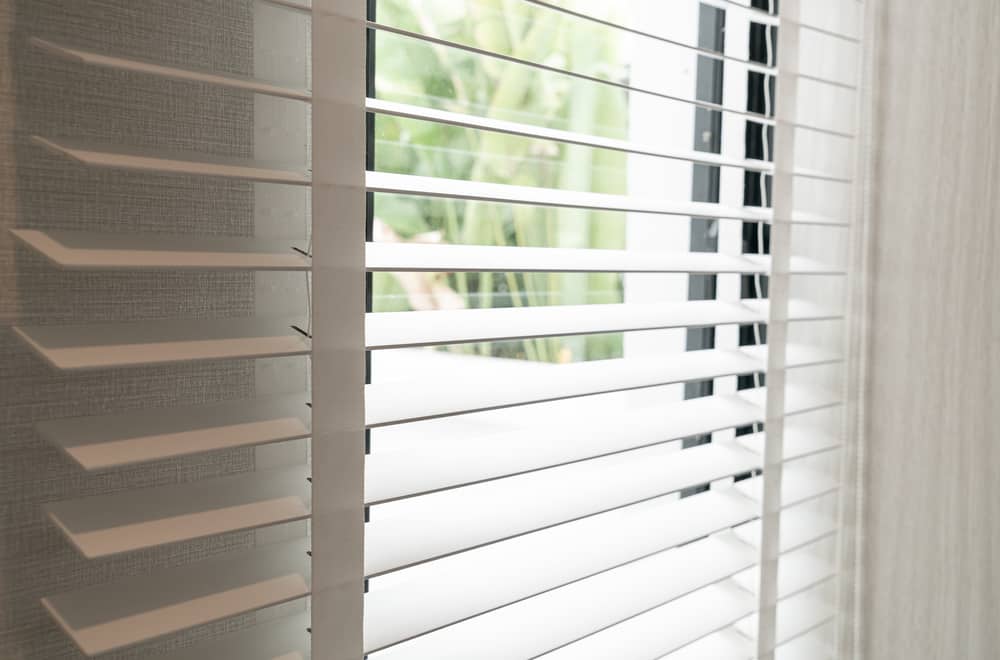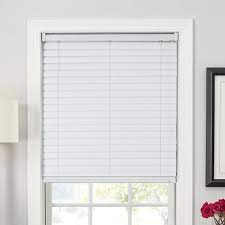Vinyl blinds are cute and cheap – they can offer basic light control and privacy, but they are not very durable, stylish, or energy-efficient. Therefore, vinyl blinds have a shorter lifespan than other types of window treatments and will eventually need to be replaced. In this article, we’ll explain how long vinyl blinds last, what factors affect their lifespan, and how to extend their lifespan.
How Long Do Vinyl Blinds Last?
The lifespan of vinyl blinds depends on several factors, such as the quality of the vinyl and the hardware, the amount of use and wear and tear they receive, the level of exposure to sunlight and humidity they face, and the level of care and maintenance they get. Generally, vinyl blinds can last between 2 to 4 years on average, but this can vary depending on the specific circumstances.
According to How To Look At A House1, a home inspection blog for buyers of site-built, mobile/manufactured, and modular homes, the average life expectancy of vinyl blinds is 2 to 4 years. However, this can be shorter if the blinds are exposed to extreme heat or moisture, which can cause them to warp, crack, or discolor. On the other hand, this can be longer if the blinds are installed in a mild climate and are not used frequently or roughly.

What Factors Affect the Lifespan of Vinyl Blinds?
As mentioned above, there are several factors that can affect the lifespan of vinyl blinds. Here are some of them:
- Quality of the vinyl and the hardware. The quality of the vinyl and the hardware used to make vinyl blinds can determine how long they will last. Low-quality vinyl is more prone to fading, staining, tearing, warping, cracking, or discoloring than high-quality vinyl. Low-quality hardware is more likely to break, rust, or malfunction than high-quality hardware. Therefore, it is important to choose vinyl blinds that are made of high-quality materials that can withstand frequent use and environmental conditions.
- Amount of use and wear and tear. The amount of use and wear and tear that vinyl blinds receive can also affect their lifespan. Vinyl blinds that are opened and closed frequently or roughly may experience more stress and damage than vinyl blinds that are left in one position or operated gently. Vinyl blinds that are exposed to pets or children may also experience more scratches or stains than vinyl blinds that are not. Therefore, it is important to use vinyl blinds properly and carefully to avoid unnecessary damage.
- Level of exposure to sunlight and humidity. The level of exposure to sunlight and humidity that vinyl blinds face can also affect their lifespan. Sunlight can cause fading, discoloration, or deterioration of the vinyl over time, especially if it is not treated with UV inhibitors or coatings. Humidity can cause mold, mildew, or warping of the vinyl over time, especially if it is not moisture-resistant or breathable. Therefore, it is important to choose vinyl blinds that are suitable for the climate and location where they are installed.
- Level of care and maintenance. The level of care and maintenance that vinyl blinds get can also affect their lifespan. Vinyl blinds that are cleaned regularly and properly can last longer than vinyl blinds that are neglected or cleaned improperly. Vinyl blinds that are repaired promptly and correctly can last longer than vinyl blinds that are left broken or repaired incorrectly. Therefore, it is important to care for and maintain vinyl blinds regularly and properly to extend their lifespan.

How to Extend the Lifespan of Vinyl Blinds
There are some steps that you can take to extend the lifespan of your vinyl blinds. Here are some tips on how to do so:
- Choose high-quality vinyl blinds that match your needs and preferences. When buying vinyl blinds, look for high-quality vinyl that is durable, resistant to fading, staining, tearing, warping, cracking, discoloring, mold, mildew, and rust. Look for high-quality hardware that is sturdy, smooth, reliable, easy to operate, and safe for children and pets. Look for vinyl blinds that match your needs and preferences in terms of light control, privacy, style, color, size, shape, etc.
- Use your vinyl blinds properly and carefully. When using your vinyl blinds, open and close them gently and smoothly using the cord or the wand. Avoid pulling or tugging on them forcefully or unevenly. Avoid exposing them to pets or children who may scratch or stain them. Avoid placing them near sources of heat or moisture that may damage them.
- Clean your vinyl blinds regularly and properly. When cleaning your vinyl blinds, follow the manufacturer’s instructions and use the appropriate products and methods. Generally, you can dust your vinyl blinds using a feather duster, a microfiber cloth, or a vacuum cleaner with a soft brush attachment. You can also wipe them with a damp cloth and mild soap and water solution if needed. Avoid using harsh chemicals or abrasive tools that may damage the vinyl or the hardware.
- Repair your vinyl blinds promptly and correctly. When repairing your vinyl blinds, follow the manufacturer’s instructions and use the appropriate parts and tools. Generally, you can replace damaged or missing slats, cords, brackets, or clips using replacement parts that you can order online or from specialty stores. You can also contact a professional vinyl blind repair service if you need more help or expertise.

Final Words
Vinyl blinds are a type of window treatments that consist of horizontal slats made of vinyl that can be tilted up or down using a cord or a wand. They are cheap, easy to install, and available in various colors and sizes. However, they are not very durable, stylish, or energy-efficient. Therefore, vinyl blinds have a shorter lifespan than other types of window treatments and will eventually need to be replaced. Generally, vinyl blinds can last between 2 to 4 years on average, but this can vary depending on the quality of the vinyl and the hardware, the amount of use and wear and tear they receive, the level of exposure to sunlight and humidity they face, and the level of care and maintenance they get.
Dale is the colorful mind behind HuetifulHomes.com, where he shows you how to create a home that is as fun and fabulous as you are. He has a passion for color and a knack for DIY, with years of interior design experience he shares his tips and tricks on how to create a home that reflects your personality and style. He believes that color is the key to happiness, and he wants to help you make your home more Huetiful.




